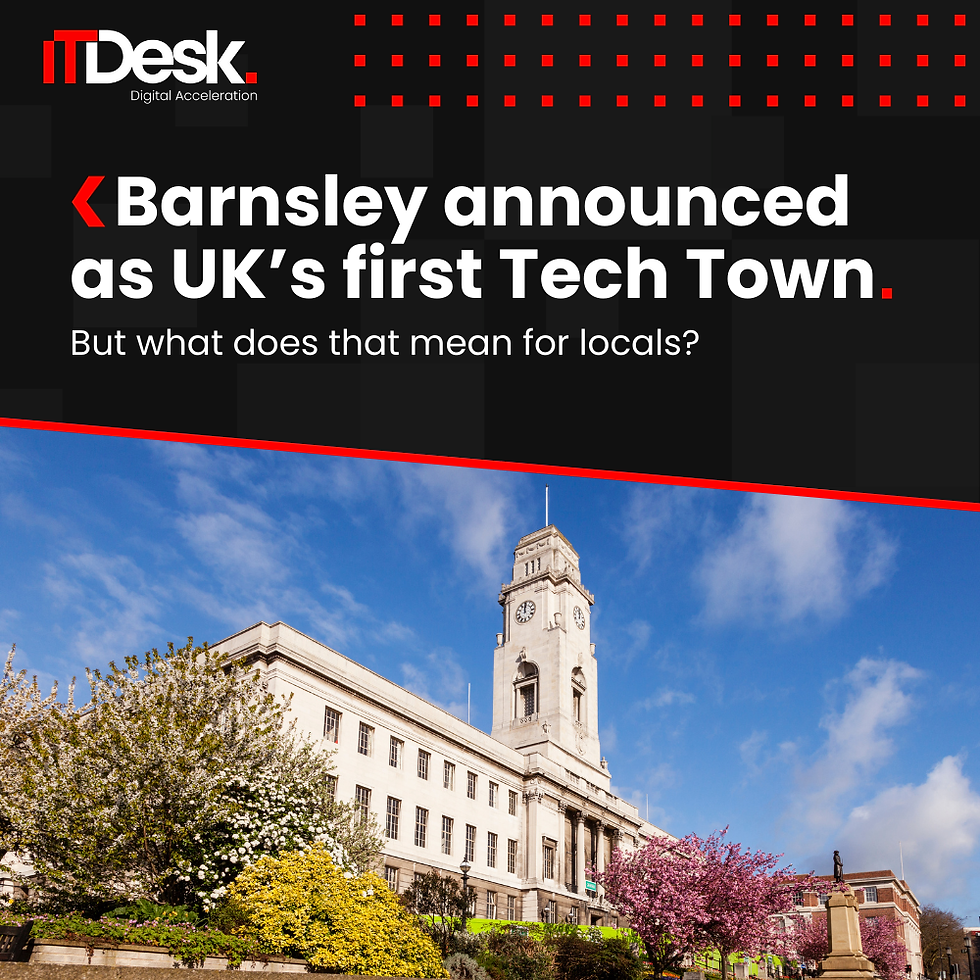Agentic AI: The Rise of Autonomous Digital Workers
- Alex Hughes

- Jul 10, 2025
- 3 min read
In 2025, the conversation around AI has shifted from simple automation to something more ambitious: Agentic AI. Sometimes called autonomous agents or digital workers, these systems are being positioned as the next evolutionary leap in artificial intelligence—moving from passive tools to goal-driven collaborators.
But what exactly is agentic AI? Is it hype, or is it something businesses should seriously prepare for? In this post, we’ll explore what agentic AI means, how it works in practice, and what UK businesses need to consider before adopting it.
What Is Agentic AI?
Agentic AI refers to systems that can independently pursue goals, make decisions, take actions, and even collaborate with other agents or humans—without needing step-by-step instructions.
Unlike traditional AI tools (which typically follow predefined workflows), agentic AI behaves more like a self-directed assistant, capable of:
Interpreting high-level goals (e.g. “sort candidates for an interview”)
Selecting and sequencing appropriate actions
Communicating with other systems or APIs
Adapting strategies based on real-time feedback
Think of it as a digital employee that knows what needs to be done, and gets on with it—without waiting for human prompts at every step.
Agentic AI vs Traditional AI
Traditional AI | Agentic AI |
Follow static rules or medals | Pursues dynamic, evolving goals |
Requires human-initiated input | Operates proactively |
Works in isolated contexts | Can collaborate across systems |
Executes tasks | Plans, executes, adapts, and learns |
Real-World Use Cases of Agentic AI
While full-scale adoption is still emerging, there are already promising examples of agentic AI being used across business functions:
1. HR Bots That Manage Leave Requests
Agentic AI tools can handle the entire employee leave process—from receiving the request, checking calendar conflicts, and updating HR systems, to notifying line managers automatically.
2. IT Helpdesk Agents That Solve Issues Autonomously
Imagine an AI agent that detects a user’s login issue, resets their password, updates Active Directory, and sends a follow-up message—all without human intervention.
3. Finance Assistants for Invoice Processing
Autonomous AI agents can receive incoming invoices, validate them against PO numbers, check for anomalies, and route them for approval.
4. Marketing Agents That Run Campaigns
Some startups are now experimenting with AI that can plan, launch, and A/B test ad campaigns—choosing creative elements, setting budgets, and adjusting based on performance.
What Are the Risks?
Despite the potential, agentic AI raises a new level of risk and complexity. Businesses must consider:
Loss of control: Agents acting autonomously may make decisions that deviate from company standards or tone.
Security: Giving AI systems permission to interact with internal tools can increase exposure to cyber threats.
Transparency and compliance: How do you audit or explain an AI's decision if it's making autonomous choices?
Ethical use: Could agentic AI lead to workforce displacement? How do we ensure fairness, accountability, and human oversight?
🛡️ Many organisations are already adapting their governance frameworks to address these challenges. As a rule of thumb: never delegate responsibility to AI without retaining accountability.
Why UK Businesses Should Pay Attention
Whether you’re a fast-scaling SME or an enterprise-level organisation, agentic AI is something to start exploring now—not in five years. According to recent research from Microsoft and McKinsey, businesses that begin to embed autonomous systems into workflows will significantly outperform those that don’t, especially in productivity and innovation metrics.
And with the UK Government’s AI Safety Summit and support for AI standards, the landscape is rapidly evolving to encourage responsible innovation.
“Agentic AI represents a shift from using AI as a tool to empowering it as a co-worker,” says a 2024 Forrester report. “The businesses that embrace this shift early will lead the next wave of digital transformation.”
Ready to Explore the Future of Work?
At IT Desk, we’re helping forward-thinking organisations understand and integrate emerging AI capabilities—including automation, Microsoft Copilot, and agentic AI solutions—into their digital strategy. Whether you're curious about pilot use cases or need a roadmap for AI adoption, we’re here to guide you.
👉 Book a free call with our AI & Automation experts and find out what’s possible.
Final Thoughts
Agentic AI might sound futuristic, but it's already reshaping how businesses operate. As digital workers become more capable, the question isn’t if they’ll become part of your team—but when. Now is the time to understand the landscape, experiment safely, and prepare your organisation for the shift from automation to autonomy.



